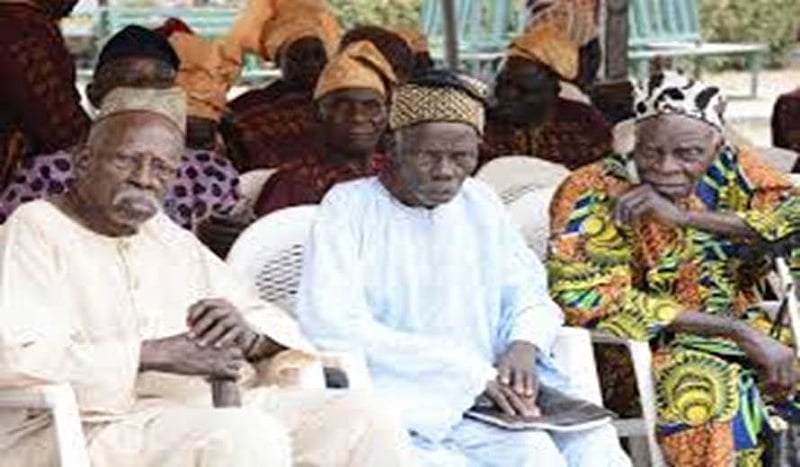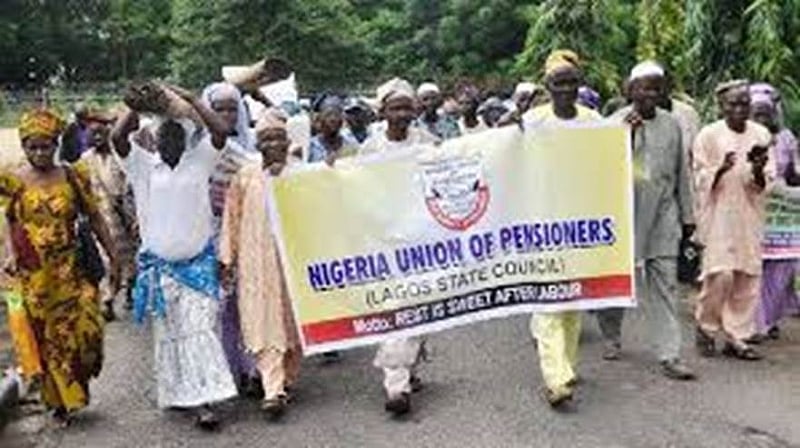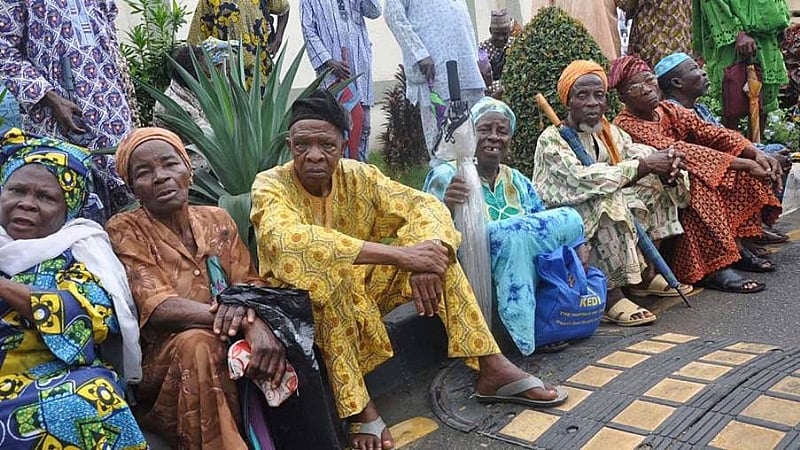In many developed countries, particularly in Western Europe and North America, senior citizens are treated with dignity and respect. They enjoy certain privileges and benefits designed to make their later years comfortable and dignified. In the United Kingdom, for instance, seniors are entitled to free or subsidized transportation, a comprehensive healthcare, and a state pension scheme that ensures they are not left destitute. These measures come in the acknowledgement of the contributions these individuals made to society during their working years. On the contrary, many African countries, including Nigeria, woefully fall short of providing for their elderly population. Despite Nigeria’s reputation as the giant of Africa and its vast oil and mineral wealth, its social safety nets for the elderly remain modest at best, and non-existent at worst. The neglect of senior citizens by the system not only exposes them to unnecessary hardship but also sets an uninspiring precedent for younger generations.
In Nigeria, old age often comes with significant health and financial challenges. Without reliable pensions, many seniors are left to rely on family members, charity, or meagre personal savings to survive. The National Social Insurance Trust Fund (NSITF) and contributory pension schemes, although established, cover only a small fraction of the population, primarily those who worked in the formal sector. Informal workers, who make up a large portion of Nigeria’s workforce, are left without any form of social security on retirement. Moreover, healthcare, which should be a fundamental right, is expensive and largely inaccessible to the elderly on retirement. Many seniors cannot afford routine check-ups or essential medications. In rural areas, the situation is even more dire, with limited or no access to quality medical facilities. We cannot compare the situation in countries like the UK with what is obtainable in Nigeria, but at least they provide us with a model worth emulating. In the UK, the state pension system ensures that those who have contributed to National Insurance receive a basic income during retirement. Seniors enjoy free bus and train travel in many parts of the country, and healthcare through the National Health Service (NHS) is free at the point of delivery. Such policies reflect a deep appreciation of the society for the contributions of the elderly and a commitment to their wellbeing. They also promote intergenerational trust and solidarity, which are crucial for the stability of any society.
African cultures traditionally reverence the elderly. In many communities, elders are seen as custodians of wisdom and tradition. They play critical roles in conflict resolution, in community leadership, and moral guidance. But these days it appears that modern socio-economic challenges are trying to stifle this traditional respect, leaving many elderly people neglected and vulnerable.

In Nigeria, there is also a seeming gradual erosion of extended family structures. Coupled with urbanization and economic pressures, these have helped to marginalize senior citizens. The shift from communal living habits to urban individualistic lifestyles means that fewer young people feel obligated or even able to care for their aging relatives. But, while the majority of seniors suffers this social neglect, some elderly individuals in Nigeria’s corridors of power remain deeply entrenched in the spoils of political office. Yet they are unable to initiate laws that can take care of their fellow elders because they have amassed enough wealth in government that can last their families for several generations. Rather than step aside and mentor or empower the youths, these elderly politicians would prefer to hold on to power indefinitely. This “sit-tight” syndrome might be a reflection of their deep-seated sense of insecurity emanating from looting the national treasury and a failure to understand the natural generational cycle of leadership.
In developed democracies, elderly statesmen often retire to advisory roles, allowing the younger generation to step into leadership positions. They serve as mentors, drawing from their vast experience to guide and support the next wave of leaders. In contrast, Nigerian politics is characterized by a reluctance to relinquish power, leading to a stagnation of ideas and the marginalization of youths. If the elderly leaders in Nigeria were to set an example by focusing on the welfare of their peers, it would create a powerful cultural foundation. It would encourage a tradition of younger leaders, following in the footsteps of their forebears, in the realisation that they too would be the senior citizens of tomorrow.

There are several compelling reasons why Nigeria and other African countries should prioritize the welfare of their senior citizens. There is the moral obligation which dictates that society owes its seniors gratitude for their contributions. After a lifetime of work, they deserve rest and care, not neglect. There is the area of cultural continuity. Elders are repositories of culture, history, and tradition. Their well-being ensures that these vital aspects of society are preserved and transmitted to future generations. Providing for seniors reduces the burden on families and communities. It helps maintain social harmony and reduces intergenerational tensions. By ensuring seniors have access to healthcare, society reduces the spread of preventable diseases and promotes overall public health. Healthy seniors can continue to contribute economically and socially, whether through part-time work, volunteering, or mentoring.
Nigeria needs to strengthen and expand its pension systems to cover informal sector workers. A universal basic pension, funded through general taxation or a national wealth fund, could provide a safety net for all seniors. Healthcare services should also be made more affordable and accessible to the elderly. This could involve establishing specialized geriatric wards, subsidizing medications, and providing free routine check-ups. Community-based support systems, such as senior centres and day programmes can provide social interaction and reduce isolationism. These centres can also offer recreational activities and basic healthcare services.
Laws mandating the welfare of the elderly can ensure that their rights are protected. These could include anti-discrimination laws, social security guarantees, and incentives for families to care for their elderly relatives. Creating policies that encourage older politicians to gracefully step aside can invigorate the political landscape. Offering to occupy advisory positions or establishing councils of elders can allow seniors to continue contributing without obstructing the rise of new leaders. Beyond policy changes, a cultural shift is necessary. Nigerian society must reawaken its traditional respect for the elderly. Media campaigns, school curricula, and community programmes can all play roles in promoting positive attitudes toward aging and the elderly.
Elderly leaders should take the initiative to model responsible behaviour. By stepping down gracefully and mentoring the younger generation, they can inspire a culture of service rather than entitlement. The issues facing Nigerian seniors are not unique. Across Africa, aging populations are growing, and the traditional systems of care are breaking down under modern pressures. Urbanization, economic hardship, and shifting cultural norms have all contributed to the marginalization of the elderly. However, Africa also has the advantage of learning from the experiences of other continents. By proactively developing social safety nets and inclusive policies, African nations can avoid the pitfalls of neglect and create societies where all citizens, regardless of age, can thrive.
In the face of all these, some African countries are beginning to make progress. In South Africa, for example, the government provides a non-contributory old-age pension to citizens above 60 years, which has significantly reduced poverty among the elderly. Mauritius also offers a universal pension scheme that has been instrumental in ensuring the well-being of seniors. These examples demonstrate that it is possible to create systems that cater for senior citizens, even in developing contexts. With political will and strategic planning, Nigeria can follow suit.
Nigeria stands at crossroads. Its large youth population offers enormous potential, but this potential cannot be fully realized if the country continues to neglect its elders. A society that does not care for its seniors risks losing its moral compass and undermining its social fabric. Investing in the welfare of seniors is not an act of charity. It is a strategic move toward national development. It strengthens social cohesion, promotes intergenerational learning, and builds a more compassionate society. As Nigeria aspires to global leadership and seeks to build a modern, inclusive democracy, it must not forget those who laid the foundation for its present and future. Senior citizens, who spent their productive years contributing to the nation’s growth, deserve to live their twilight years in dignity and comfort. Caring for the elderly is a mark of civilization. It reflects a society’s values and priorities. By learning from the more developed democracies and leveraging its own rich cultural traditions, Nigeria can create a system where seniors are celebrated and supported.
Moreover, elderly political leaders must set the example by stepping aside after years of occupying public offices, and mentor the youths. By doing so, they demonstrate that leadership is about service, not power; about legacy, not personal gain. Ultimately, Nigeria that takes care of its seniors today lays the foundation for a society where future generations can age with confidence, knowing they too will be cared for when their time comes. It is an investment not just in the elderly, but in the moral and social future of the nation itself.


